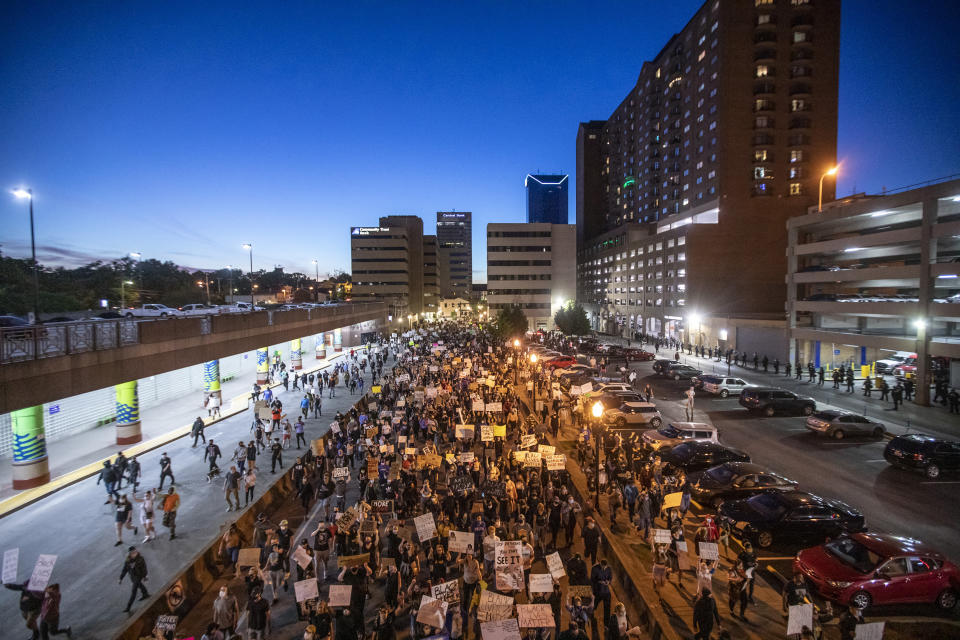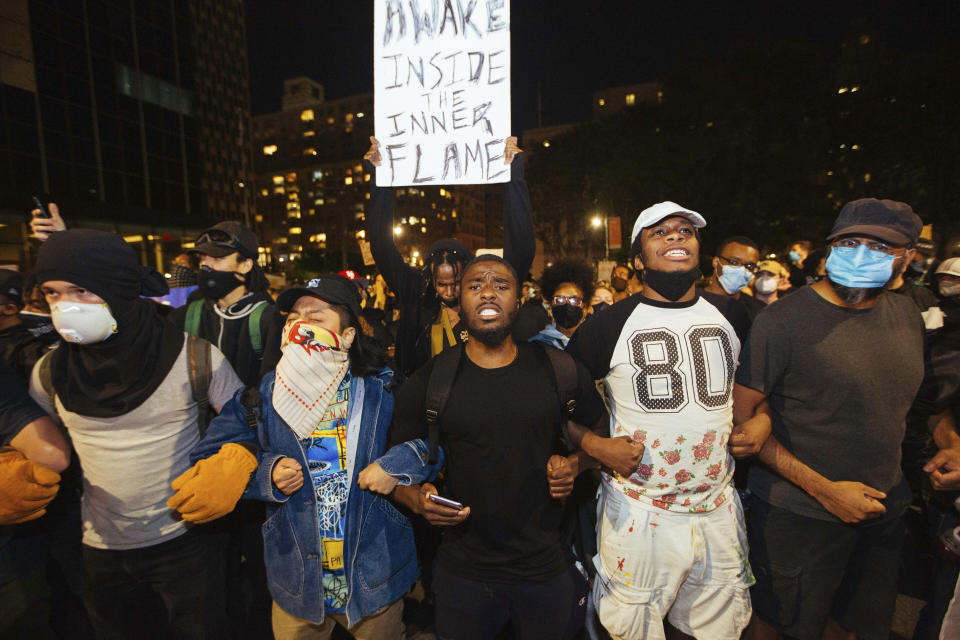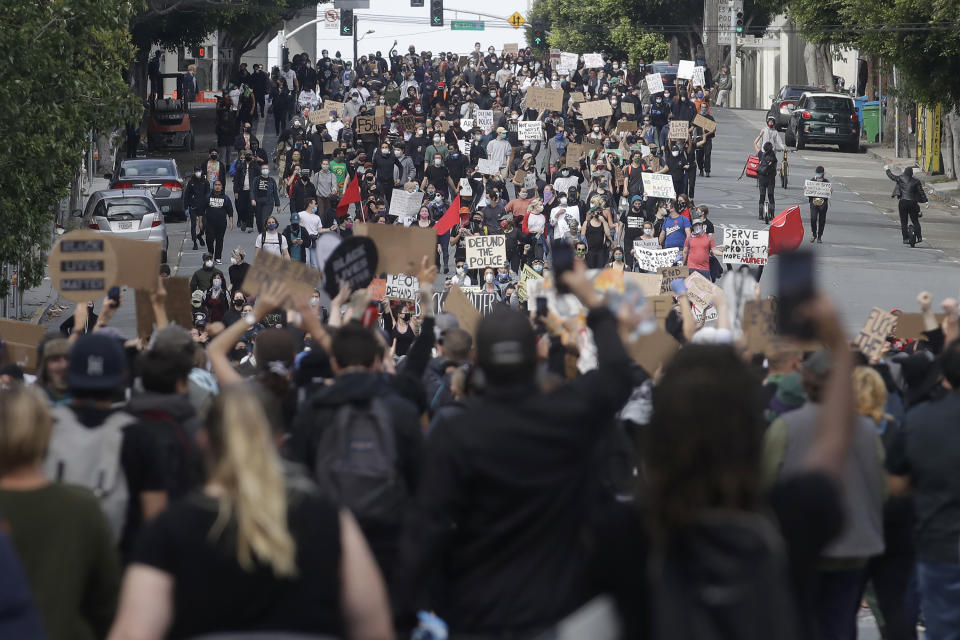'Breeding grounds': Pictures highlight coronavirus risk during mass protests
Health experts in the US fear the ongoing protests over the death of George Floyd could trigger a surge in coronavirus cases across the country.
As hundreds of thousands of people take to the streets daily across major cities in the US to call for an end to racial inequality in a movement triggered by Mr Floyd’s alleged murder at the hands of a white police officer in Minneapolis last week, concerns of the after-effects of the protests are rising.
And while authorities fear the protests are beginning to present themselves as opportunities for rioting and looting, health authorities are more concerned over the lack of social distancing amid a global pandemic.
"There's no doubt in my mind that these can become breeding grounds for this virus," Dr Michael Mina, an assistant professor of epidemiology at Harvard T. H. Chan School of Public Health, told reporters.

"I would not be surprised to see in the next couple of weeks that we see increases that may be linked to protests."
There are fears carriers of the virus, particularly asymptomatic cases, are unwittingly spreading the virus in congested urban streets, where police look to contain protesters into smaller areas.
And while the protests are outdoors and large sections of protesters are wearing masks, experts are warning they are not effective in preventing the spread of the virus if social distancing is ignored.
Truck driver who sped into protesters hauled from rig and beaten
China mocks US ‘hypocrisy’ during protests with just three words
Los Angeles Mayor Eric Garcetti said he feared such events witnessed in the city could become a “super-spreader” event, while Atlanta Mayor Keisha Lance Bottoms said it was vital protesters went to get a virus test.
Dr Howard Markel, a professor at the University of Michigan’s School of Public Health who studies the history of pandemics, warned heightened emotions would only worsen the spread of the virus.


“People get lost in the moment, and they lose awareness of who is close to them, who’s not, who’s wearing a mask, who’s not,” he told the New York Times.
Despite the protests initially focused on the treatment of black people at the hands of police in the US, they have since developed into calls for an end to social justice issues, including health disparities and spurred on by the social-economical effects of COVID-19.
Black Americans’ heightened virus risk divides opinion
Yet there are fears the large number of African-American protesters are putting themselves at a heightened risk by gathering en masse.
"The same communities that are already the most affected are potentially going to have an increase in the number of cases as a result of people gathering," Dr Leana Wen, an emergency room physician and former Baltimore health commissioner, told USA Today.
Black Americans have been worst hit in the US during the pandemic, with rates of hospitalisations among people of colour far greater than those of whites.
The US currently has nearly 1.8 million confirmed cases – more than three times the amount of Brazil, the second highest globally.
The death toll has risen to 104,702, according to Johns Hopkins University data as of 7am on Tuesday (AEST).
Yet civil rights advocates have stressed a pandemic should not dictate when protesters take to the streets.

Melanie Campbell, president of the National Coalition on Black Civic Participation, said the severity of the situation meant black people were willing to risk their lives to fight such a cause, particularly after years of growing unrest.
"Black people are risking their lives protesting in the middle of a pandemic that’s killing black folks. That’s real. There is no convenient time to fight back,” she said.
Dr Hillary Babcock, an infectious disease specialist at the Washington University School of Medicine in St Louis, and immediate past president of the Society for Healthcare Epidemiology of America, told USA Today discouraging black Americans to protest amid the current pandemic was socially wrong considering prior stances to events with large numbers of people.
“I don't think using public health as a reason to discourage protests after these events is really appropriate," she said.
"It's a little disingenuous to say that the health risk from protesting is somehow bigger than the health risk at Lake of Ozarks (a Memorial Day weekend pool party in Missouri) or the practices that brought us to this point in the first place."
Do you have a story tip? Email: newsroomau@yahoonews.com.
You can also follow us on Facebook, Instagram and Twitter and download the Yahoo News app from the App Store or Google Play.




